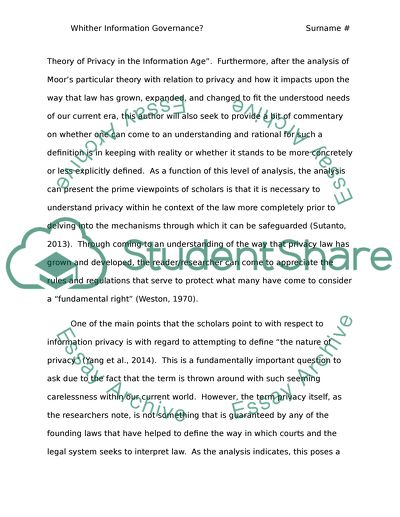Cite this document
(“Whither information governance Essay Example | Topics and Well Written Essays - 4000 words”, n.d.)
Retrieved from https://studentshare.org/information-technology/1646176-whither-information-governance
Retrieved from https://studentshare.org/information-technology/1646176-whither-information-governance
(Whither Information Governance Essay Example | Topics and Well Written Essays - 4000 Words)
https://studentshare.org/information-technology/1646176-whither-information-governance.
https://studentshare.org/information-technology/1646176-whither-information-governance.
“Whither Information Governance Essay Example | Topics and Well Written Essays - 4000 Words”, n.d. https://studentshare.org/information-technology/1646176-whither-information-governance.


